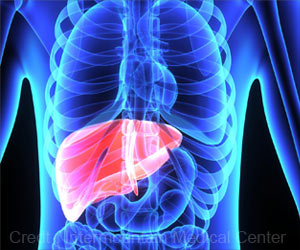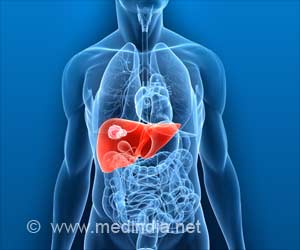- Mutations in the human liver may actually promote tissue healing and regeneration without causing cancer
- Genomic sequencing techniques and methods have made it possible to understand that normal tissues in healthy people can often undergo somatic mutations due to changes in DNA
- A CRISPR screening method to detect a number of liver mutations in patient samples as well as examine the impact of such mutations has been developed
- Scientists found that several mutations in the liver provided liver cells with fitness advantages and some mutated genes even lead to tissue healing and regeneration instead of causing cancers
Mutations in the Human Liver
Genomic sequencing techniques and methods have made it possible to understand that normal tissues in healthy people can often undergo somatic mutations due to changes in DNA. However, there was little knowledge so far on somatic mutations in solid organs and the effects. Prof. Hao Zhou, Associate Professor at CRI and of Internal Medicine and Pediatrics at UT Southwestern; said that they often view mutations mostly from the perspective of cancer-causing mutations but we still haven’t quite figured out how some somatic mutations can actually promote tissue healing.Read More..
The team then set out to develop their own methods to identify mutations in normal tissues. They also worked on developing computational methods to analyze sequencing data generated through the study.
Co-authors Drs. Adam Yopp, Associate Professor of Surgery at UTSW, and Amit Singal, Associate Professor of Internal Medicine and Population and Data Sciences at UTSW found hundreds of mutations in liver samples from patients at Parkland hospital. They used a CRISPR method to test out the impact of mouse liver mutations on tissue regeneration and found that some mutations actually promote healing.
Tissue Healing and Regeneration
Joyce Jio, a graduate student in Zhou’s lab developed a CRISPR screening method to detect a number of liver mutations in patient samples as well as examine the impact of such mutations. The team found that several mutations in the liver provided liver cells with fitness advantages and some mutated genes even lead to tissue healing and regeneration instead of causing cancers. According to Zhu, certain mutations occur in order to regenerate tissues during chronic injury and inflammation minus cancer-causing effects.These results may bode well for those with chronic liver disease which currently has few therapeutic options. Patients with this disease are at a greater risk of developing liver cancer. Understanding liver mutations can help doctors understand and prevent the risk of liver cancers.
In the future, scientists can build upon this research to develop therapies to stall the progression of liver disease.
The study was funded by Cancer Prevention and Research Institute of Texas (CPRIT), Stand Up To Cancer, the Pollock Foundation, the National Institutes of Health, and other donors to the Children’s Medical Center Foundation.
- Researchers show that mutations in human livers can promote tissue regeneration - (https://www.utsouthwestern.edu/newsroom/articles/year-2019/tissue-regeneration.html)
Source-Medindia
















